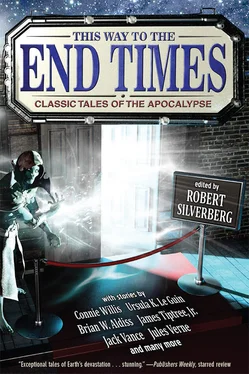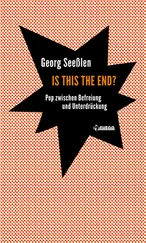We have two methods of influencing the past through past individuals; for we can operate either upon minds of great originality and power, or upon any average individual whose circumstances happen to suit our purpose. In original minds we can only suggest some very vague intuition, which is then “worked up” by the individual himself into some form very different from that which we intended, but very potent as a factor in the culture of his age. Average minds, on the other hand, we can use as passive instruments for the conveyance of detailed ideas. But in such cases the individual is incapable of working up the material into a great and potent form, suited to his age.
But what is it, you may ask, that we seek to contribute to the past? We seek to afford intuitions of truth and of value, which, though easy to us from our point of vantage, would be impossible to the unaided past. We seek to help the past to make the best of itself, just as one man may help another. We seek to direct the attention of past individuals and past races to truths and beauties which, though implicit in their experience, would otherwise be overlooked.
We seek to do this for two reasons. Entering into past minds, we become perfectly acquainted with them, and cannot but love them; and so we desire to help them. By influencing selected individuals, we seek to influence indirectly great multitudes. But our second motive is very different. We see the career of Man in his successive planetary homes as a process of very great beauty. It is far indeed from the perfect; but it is very beautiful, with the beauty of tragic art. Now it turns out that this beautiful thing entails our operation at various points in the past. Therefore we will to operate.
Unfortunately our first inexperienced efforts were disastrous. Many of the fatuities which primitive minds in all ages have been prone to attribute to the influence of disembodied spirits, whether deities, fiends, or the dead, are but the gibberish which resulted from our earliest experiments. And this book, so admirable in our conception, has issued from the brain of the writer, your contemporary, in such disorder as to be mostly rubbish.
We are concerned with the past not only in so far as we make very rare contributions to it, but chiefly in two other manners.
First, we are engaged upon the great enterprise of becoming lovingly acquainted with the past, the human past, in every detail. This is, so to speak, our supreme act of filial piety. When one being comes to know and love another, a new and beautiful thing is created, namely the love. The cosmos is thus far and at that date enhanced. We seek then to know and love every past mind that we can enter. In most cases we can know them with far more understanding than they can know themselves. Not the least of them, not the worst of them, shall be left out of this great work of understanding and admiration.
There is another manner in which we are concerned with the human past. We need its help. For we, who are triumphantly reconciled to our fate, are under obligation to devote our last energies not to ecstatic contemplation but to a forlorn and most uncongenial task, the dissemination. This task is almost intolerably repugnant to us. Gladly would we spend our last days in embellishing our community and our culture, and in pious exploration of the past. But it is incumbent on us, who are by nature artists and philosophers, to direct the whole attention of our world upon the arid labor of designing an artificial human seed, producing it in immense quantities, and projecting it among the stars. If there is to be any possibility of success, we must undertake a very lengthy program of physical research, and finally organize a world-wide system of manufacture. The work will not be completed until our physical constitution is already being undermined, and the disintegration of our community has already begun. Now we could never fulfil this policy without a zealous conviction of its importance. Here it is that the past can help us. We, who have now learnt so thoroughly the supreme art of ecstatic fatalism, go humbly to the past to learn over again that other supreme achievement of the spirit, loyalty to the forces of life embattled against the forces of death. Wandering among the heroic and often forlorn ventures of the past, we are fired once more with primitive zeal. Thus, when we return to our own world, we are able, even while we preserve in our hearts the peace that passeth understanding, to struggle as though we cared only for victory.
3. EPILOGUE
I AM SPEAKING TO YOU now from a period about twenty thousand terrestrial years after the date at which the whole preceding part of this book was communicated. It has become very difficult to reach you, and still more difficult to speak to you; for already the Last Men are not the men they were.
Our two great undertakings are still unfinished. Much of the human past remains imperfectly explored, and the projection of the seed is scarcely begun. That enterprise has proved far more difficult than was expected. Only within the last few years have we succeeded in designing an artificial human dust capable of being carried forward on the sun’s radiation, hardy enough to endure the conditions of a trans-galactic voyage of many millions of years, and yet intricate enough to bear the potentiality of life and of spiritual development. We are now preparing to manufacture this seminal matter in great quantities, and to cast it into space at suitable points on the planet’s orbit.
Some centuries have now passed since the sun began to show the first symptoms of disintegration, namely a slight change of colour toward the blue, followed by a definite increase of brightness and heat. Today, when he pierces the ever-thickening cloud, he smites us with an intolerable steely brilliance which destroys the sight of anyone foolish enough to face it. Even in the cloudy weather which is now normal, the eye is wounded by the fierce violet glare. Eye-troubles afflict us all, in spite of the special glasses which have been designed to protect us. The mere heat, too, is already destructive. We are forcing our planet outward from its old orbit in an ever-widening spiral; but, do what we will, we cannot prevent the climate from becoming more and more deadly, even at the poles. The intervening regions have already been deserted. Evaporation of the equatorial oceans has thrown the whole atmosphere into tumult, so that even at the poles we are tormented by hot wet hurricanes and incredible electric storms. These have already shattered most of our great buildings, sometimes burying a whole teeming province under an avalanche of tumbled vitreous crags.
Our two polar communities at first managed to maintain radio communication; but it is now some time since we of the south received news of the more distressed north. Even with us the situation is already desperate. We had recently established some hundreds of stations for the dissemination, but less than a score have been able to operate. This failure is due mainly to an increasing lack of personnel. The deluge of fantastic solar radiation has had disastrous effect on the human organism. Epidemics of a malignant tumour, which medical science has failed to conquer, have reduced the southern people to a mere remnant, and this in spite of the migration of the tropical races into the Antarctic. Each of us, moreover, is but the wreckage of his former self. The higher mental functions, attained only in the most developed human species, are already lost or disordered, through the breakdown of their special tissues. Not only has the racial mind vanished, but the sexual groups have lost their mental unity. Three of the sub-sexes have already been exterminated by derangement of their chemical nature. Glandular troubles, indeed, have unhinged many of us with anxieties and loathings which we cannot conquer, though we know them to be unreasonable. Even the normal power of “telepathic” communication has become so unreliable that we have been compelled to fall back upon the archaic practice of vocal symbolism. Exploration of the past is now confined to specialists, and is a dangerous profession, which may lead to disorders of temporal experience.
Читать дальше











